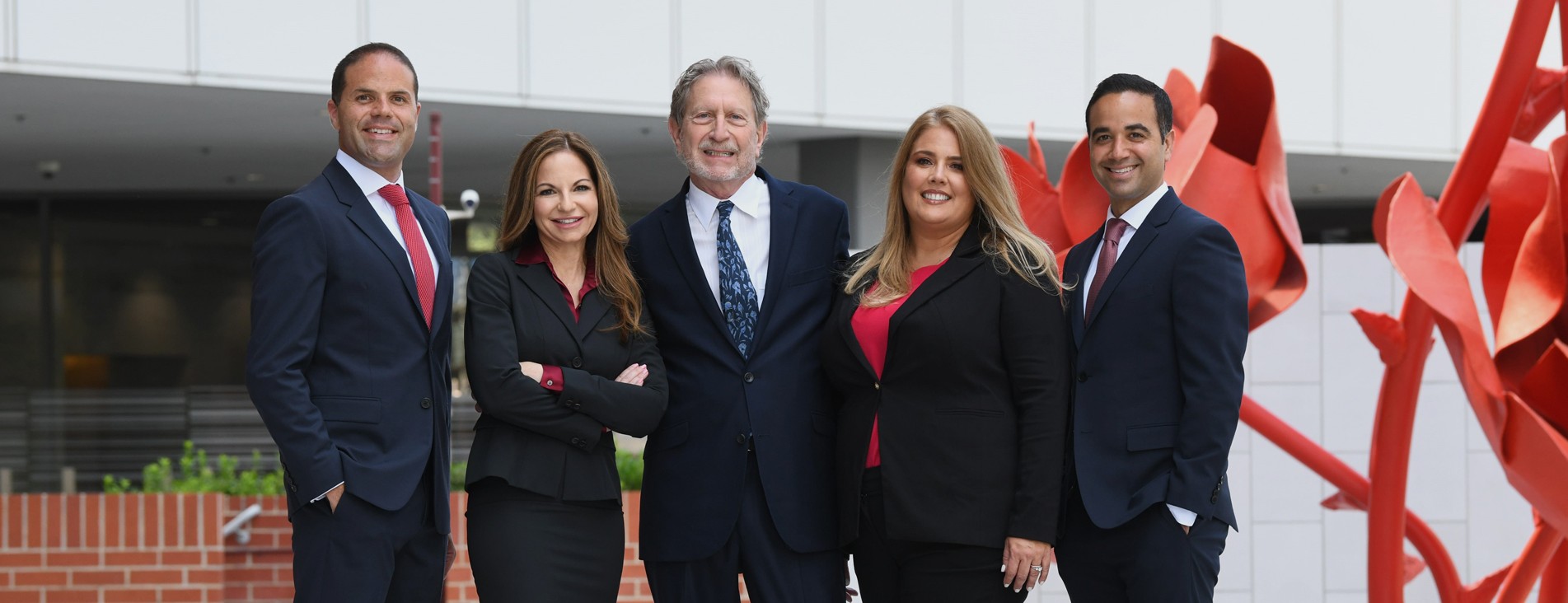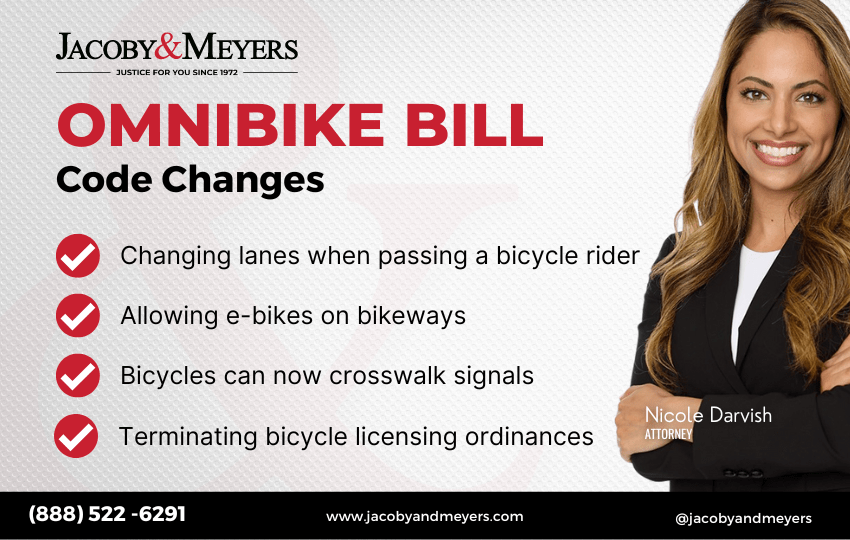Thanks to the authors of the OmniBike Bill 1909, we are one step closer to promoting bicycle riders’ rights and ensuring their safety on the road. The said bill has four major provisions that will affect the current California Bike Law. It has shone a light on the need to dismiss harassment of bikers, highlight the use of roads by drivers of vehicles and bicycles, establish sound judgment on biking, and develop e-bike access.
Read more to learn about the OnniBike Bill (AB 1909) and its effect on all drivers on the road.
What are the Four Bike Code Changes in the OmniBike Bill?
While the California Vehicle Code presents several safety protocols for bikers, there are still a significant number of bicycle accidents every year. From 2017 to 2021, there were 48,370 bicycle crashes and 775 deaths attributed to these accidents.
With the provisions of the OmniBike Bill, bicycle riders will have a smoother and safer experience on the road. Below are four significant code changes as stated in AB 1909:
Changing lanes when passing
Vehicle Code 21760 states that a car driver must give at least a three-foot margin when passing a bicycle. However, applying this on the road seems challenging because measuring the three-foot distance while driving is almost impossible.
With the provision of AB 1909, the bill considers this problem and proposes that vehicle drivers must change lanes when passing a bicycle rider whenever possible.
While this helps reduce car collisions, bicyclists must still be cautious when traveling with other vehicles. Make sure to follow these guidelines when riding your bicycle:
- Travel on the right side of the road, if possible.
- Use safety gear such as helmets and reflective jackets.
- Obey signs and signals.
- Look over your shoulder and signal your turn when moving left.
Allowing e-bikes on bikeways
As citizens of California embrace electronic bikes as a mode of transportation, OmniBike Bill develops a space for e-bikers on the road.
The existing law prohibits motorized bicycles on a bicycle path or trail, bikeway, bicycle lane, equestrian trail, hiking trail, or recreational trail, as specified. With AB 1909, electric bicycles will be allowed on bikeways or bike paths. However, the bill still authorizes the Department of Parks and Recreation and local authorities to prohibit them on some trails, such as equestrian, hiking, and recreational trails.
Bicycles can now crosswalk signals
Through the OmniBike Bill, bikes will have the right to cross streets on pedestrian walk signals. This is as opposed to the existing law allowing bicycles to travel only at green traffic lights. In addition, pedestrians and bicyclists will have a three- to seven- second headstart when crossing the street.
Terminating bicycle licensing ordinances
In some cases, bicyclists experience police harassment through the bicycle licensing program, which requires bicycle riders to acquire licenses and bikes to be registered.
Although this law is rarely enforced in cities in California, it is often used to harass individuals, especially those of color. Fortunately, AB 1909 provides a solution to this problem by terminating the said ordinance in municipalities in California.
Is AB 2264 of the OmniBike Bill contradicting AB 2147?
AB 1909, or the OmniBike Bill, and AB 2147, also known as he Freedom to Walk Act, are not contradicting each other.
The Freedom to Walk Act prohibits law enforcement officers from ticketing pedestrians for jaywalking when crossing outside an intersection or crosswalk as long as it is deemedsafe and necessary. However, they can issue a ticket when someone unsafely walks across the road.
Meanwhile, a provision of AB 1909 states that pedestrians and cyclists are permitted to cross a walk signal given that there is a signal indicating the three- to seven-second head start. Both laws impose the following:
- A ‘WALK’ or approved ‘walking person’ means that a pedestrian may cross the roadway in the direction of the signal.
- A flashing ‘DON’T WALK,’ ‘WAIT’ or approved ‘upraised signal’ symbol with a countdown device indicating the time left for pedestrians and cyclists to cross allows them to walk on headstart. However, they are required to complete the crossing when the countdown ends.
- A steady ‘DON’T WALK,’ ‘WAIT,’ or approved ‘upraised signal’ without the leading countdown device or signal means that pedestrians and cyclists should not walk across the street or road.
- Any pedestrian who started crossing on the ‘WALK’ symbol and has not entirely crossed shall move towards a sidewalk or safety zone or leave the roadway when the ‘DON’T WALK’ signal is on.
When will the New Provisions of the Law be Effective?
Fortunately for cyclists, the new provisions of the OmniBike Bill willll take effect in January 2023. However, the amendment allowing cyclists to cross on walk signals will be effective in January 2024. The modifications to the California Vehicle Code, as presented in AB 1909, shall be mandated in California.
What Happens When I am Involved in a Bicycle Accident?
The current California Bike Law and new provisions from the OmniBike Bill will help reduce bicycle and pedestrian accidents. However, other drivers’ negligence still causes some pedestrian and bicycle accidents. When you are involved in a collision, here are the steps to respond accordingly:
- Check if you have injuries from the crash.
- Call 911 immediately.
- If possible, do not move your bicycle. It is crucial for police officers to witness the scene as it is.
- Gather all necessary evidence, such as the driver’s contact details.
- Make an initial bicycle accident report.
- Contact a lawyer if necessary.
Sometimes, you may experience specific challenges when dealing with a bicycle accident claim, such as:
- Insufficient evidence
- Hit-and-run bicycle accident
- Uninsured drivers
- Insurance companies bargaining for reduced compensation
If you encounter these challenges, you may seek the help of a legal expert to help you build your case. Jacoby and Meyers has experienced lawyers who can calculate the damages from the accident and negotiate maximum compensation. Here at Jacoby and Meyers, you are our top priority. Give us a call today at 888-960-0480 for a free consultation. We are available 24 hours a day, seven days a week, to help you.
Call or text 888-522-6291 or complete a Free Case Evaluation form








